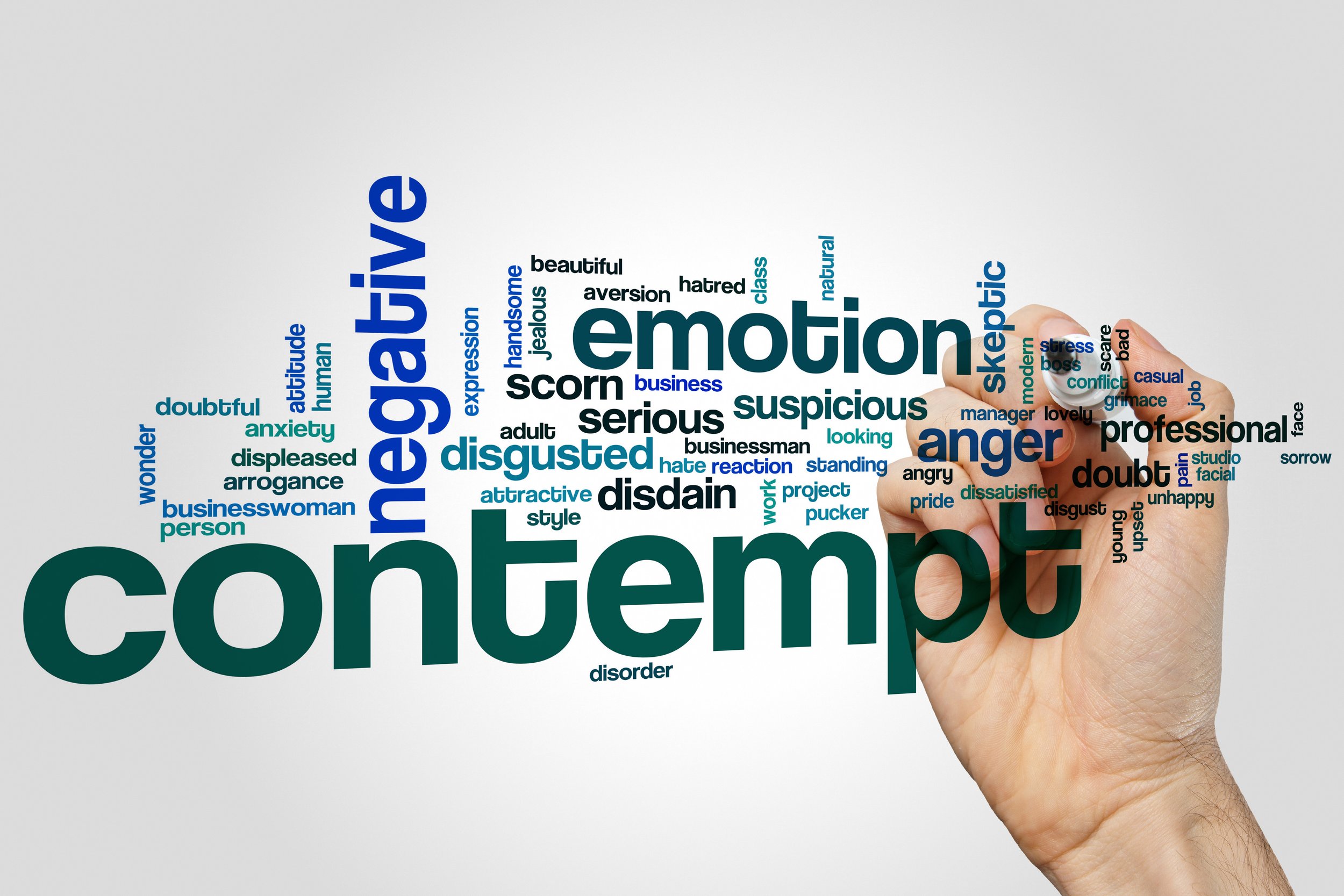The Communication Style That Leads to Divorce
Just Be Nice
My parents often had friends over when I was a kid and I would love to be a fly on the wall listening to the grown-up conversations. After the other couples left, my parents would always critique the evening. How was the food? Did they like the cake from that new bakery? But the stuff that fascinated this future-therapist most was my Dad’s observations of the other couple. “Did you hear how they spoke to each other? How they’re not nice to each other? That’s the first sign a marriage is in trouble.”
No, my dad wasn’t a therapist (he is actually a former cop with a keen eye for people), but it turns out he was right. I have a front row seat to this every day in my office when I hear otherwise lovely, articulate individuals say things to the other lovely articulate individual sitting next to them that would make my dad’s jaw drop. It’s called contempt, and it’s one of the biggest threats to having a divorce proof marriage.
Familiarity Breeds Contempt?
What is contempt and why is it so destructive? Name calling, sarcasm, mocking, mimicking, condescension are all contempt. So is more subtle body language like eye rolling, heavy sighing, throwing your head back in annoyance when your spouse is speaking. Contempt is poison. It says “I’m better than you,” “You’re stupid,” “What you’re saying doesn’t matter.” Most of the couples that come to me want more connection and love. Contempt kills both and can turn small frustrations—like forgetfulness or not helping out—into full-blown marriage trouble.
Famed marriage researcher John Gottman is probably most well-known for his work around communication patterns that lead to divorce (2019). He can predict future divorce with astounding accuracy in couples by noticing the presence of what he calls the Four Horseman; which are criticism, defensiveness, stonewalling, and contempt. Of the four, which one is the most destructive and the most predictive of divorce? Turns out my dad didn’t need a PhD to know the answer…contempt.
Stop Being Mean
Whether you’ve been doing this dance for 20 years or 2, there are things you can do now to begin to change it and make your relationship more divorce proof.
Explore What’s Underneath
Often this type of toxicity begins to seep into the relationship because of underlying issues. Are there past resentments? Is there shared meaning on roles within the relationship (who does what) or do they need to be negotiated or renegotiated? Are there appropriate boundaries both with each other and with others? Is there connection? Do you make time for one another—like a regular date night—to stay close? Are you expressing your needs in an appropriate way or do you expect your partner to read your mind? Addressing these can prevent behaviors like rude remarks or secrecy about an affair from destroying trust.
Explore Your Family of Origin
Get curious about what you saw growing up. Did the grown ups around you treat each other with kindness and respect or not so much? Sometimes the way we speak to one another is habitual. We do what was modeled for us without even realizing it. The first step then is to notice it. Only then can you catch yourself in the moment and stop. Learning to be selfless in small daily actions—whether it’s doing chores, showing affection, or listening without interrupting—can build strength in your bond.
Create an Environment of Kindness and Appreciation
Notice when your partner does something nice, compliment, speak kindly, say please and thank you. Sounds simple, but sometimes it isn’t. Oftentimes couples have been negative for so long that it takes practice and time to override the negativity. I give my couples relationship therapy exercises you can try at home. One is to tell your partner one thing a day you appreciate about them or “catch” them doing one good thing per day. Another relationship exercise that can be done without your partner even knowing it is a partner gratitude journal which consists of writing down three things per day you are grateful for about your partner (one of those has to be something new, the other two can be repeated). The object of these exercises is to begin to retrain your brain to notice the positive. Remember, your brain has been training for a long time to notice the negative so it will take some time to build that new muscle and create those new neural pathways. Simple acts of appreciation are powerful tools in making a marriage more divorce proof.
Guard Your Relationship
If you think of your relationship as a sealed greenhouse, your job is to make sure the conditions in the greenhouse enable the plants to thrive. Contempt is like introducing a pollutant into the greenhouse that can eventually cause the plants to wither and die. By the way, if you have family, remember that they are also breathing the air in your greenhouse. Guard your relationship greenhouse and focus on building the kind of love and connection that can withstand life’s inevitable stressors.
If contempt or any other negative patterns have crept into your relationship, reach out to me for help to unravel those patterns and to create more peace and connection—so your relationship can be truly divorce proof.
Cole, D.L. (2019). Gottman, John. In: Lebow, J.L., Chambers, A.L., Breunlin, D.C. (eds) Encyclopedia of Couple and Family Therapy. Springer, Cham. https://doi.org/10.1007/978-3-319-49425-8_994

